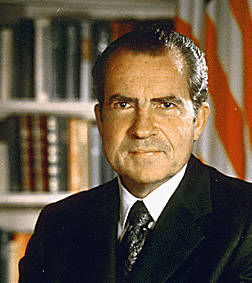Misinformation Management
The world of politics is full of misinformation....so much so that it can be difficult to discern what is true and what is not.

Enter the website FactCheck.org, a site that thoroughly investigates claims made by politicians, whether Democrat, Republican, or independent. They do a very good job of getting through the deception and disinformation of U.S. politics.
So what's that got to do with this blog? The world of health is very similar to the world of politics....ripe with misinformation, distortion, half-truths, quarter-truths, and zero-truths. It can be very difficult to discern what's real and what's not. On top of that, many people don't have the required background or time to be able to filter incorrect information. With the invention of the internet, the ability of people to spread misinformation has increased 10,000 fold.
Which brings me to one of my purposes behind this blog, and of my other blog The Health Sleuth....to help clear up misinformation out there. Unlike many people, I have the time, resources, and background to try to get down to what's true and what's not in the health field.
Let me give you an example. When I was a researcher for a weight management program, the dietitians wanted an assessment of the safety of various artificial sweeteners. With a range of information from industry telling us that they're perfectly safe, to thousands of websites saying artificial sweeteners are more dangerous than terrorists, it can be tough to know what's really true.
So I embarked on a journey, spending hours and weeks investigating the safety of artificial sweeteners. I particularly focused on aspartame (Nutrasweet). I read the studies. I read the websites (both pro and con). I read debates. I browsed through a book talking about the alleged dangers of these sweeteners. I cross-checked everything that I could. I was skeptical of everything presented to me, regardless of whether it was pro or con. I applied the same critical standards to every bit of information that I waded through.
All I cared about was finding the truth. I was going to be my own FactCheck.org. And it was not easy. It took me weeks of my full-time job to find answers that were factual. If it took me weeks of my full-time job to find an answer, there's no way the average person could accurately discern information from disinformation in regards to artificial sweeteners.
What I found was that all of the internet-scare websites and alarmist books were completely bogus. They were full of logical fallacies, half-truths, historical inaccuracies, and sometimes information that appeared to be completely made up. The fact is, most artificial sweeteners, including the supposedly evil Nutrasweet, are quite safe for the vast majority of the population when consumed at amounts below the Acceptable Daily Intake (ADI). And, believe me, it's pretty tough to exceed the ADI. About the only potential issues that I could find with Nutrasweet....issues that had a basis in factual evidence....were that people with phenylketonuria (PKU, a very rare genetic disorder) should watch their intake. There was also some very weak evidence that Nutrasweet, in large doses on an empty stomach, might trigger headaches in a very small minority of sensitive people. But I stress this evidence was very weak.
And no, I'm not on Nutrasweet's payroll.
So, you can always be sure that I'll give you the straight dope on the health field, and that I'll give you information that I've thoroughly investigated and cross-checked. In some ways, I want this blog to become a sort of mini-FactCheck.org for weight loss, nutrition, and obesity. Not every topic is going to be a "debunking" topic, but you can be certain I'll occasionally tackle misinformation in regards to your health.
